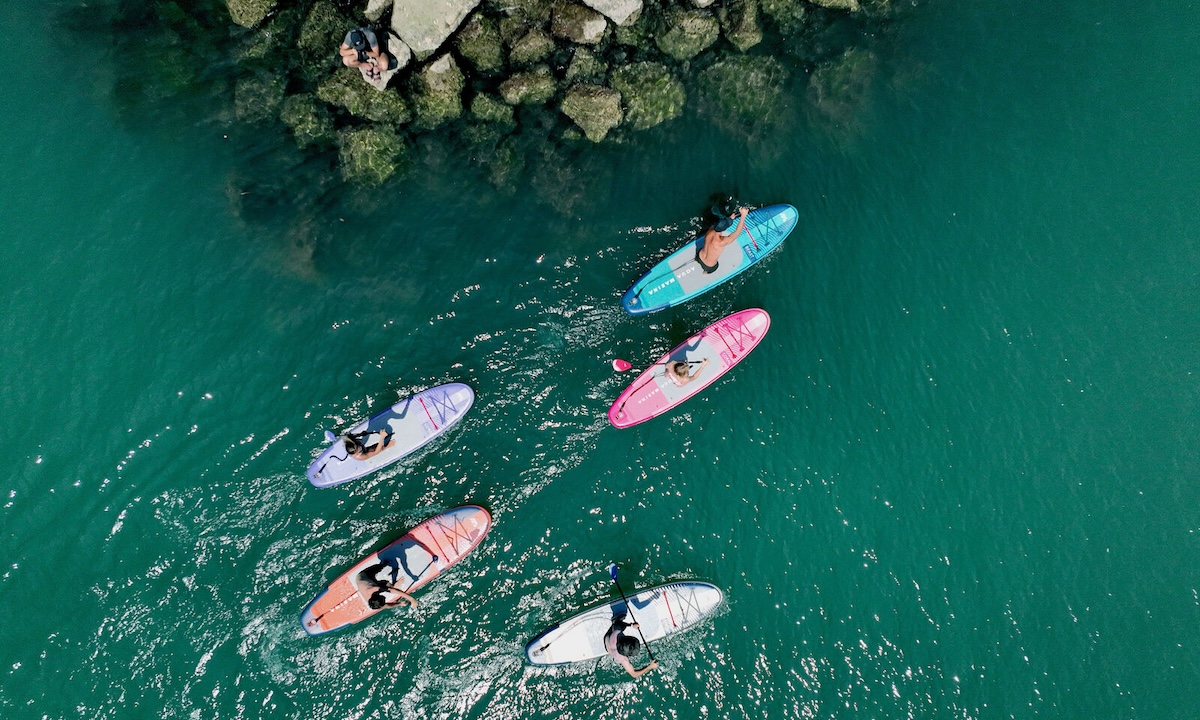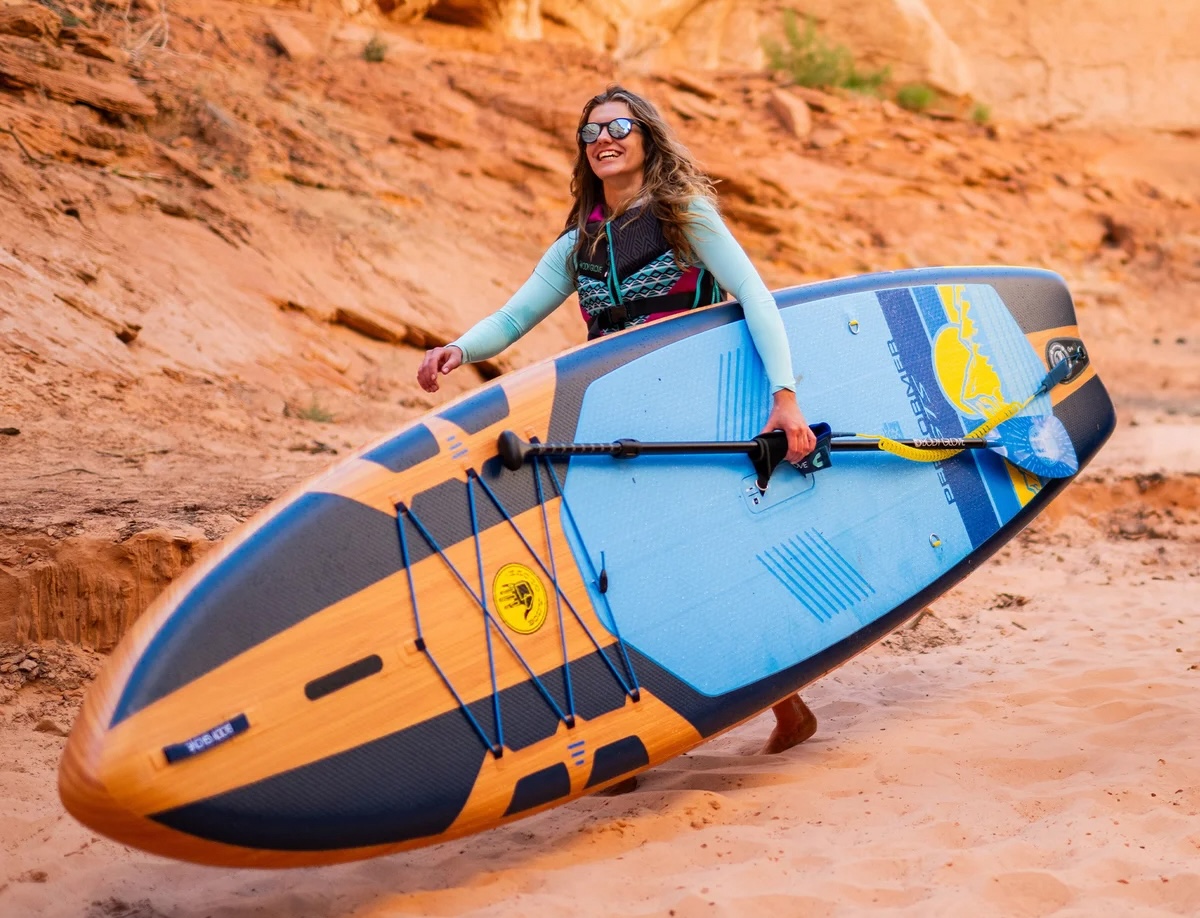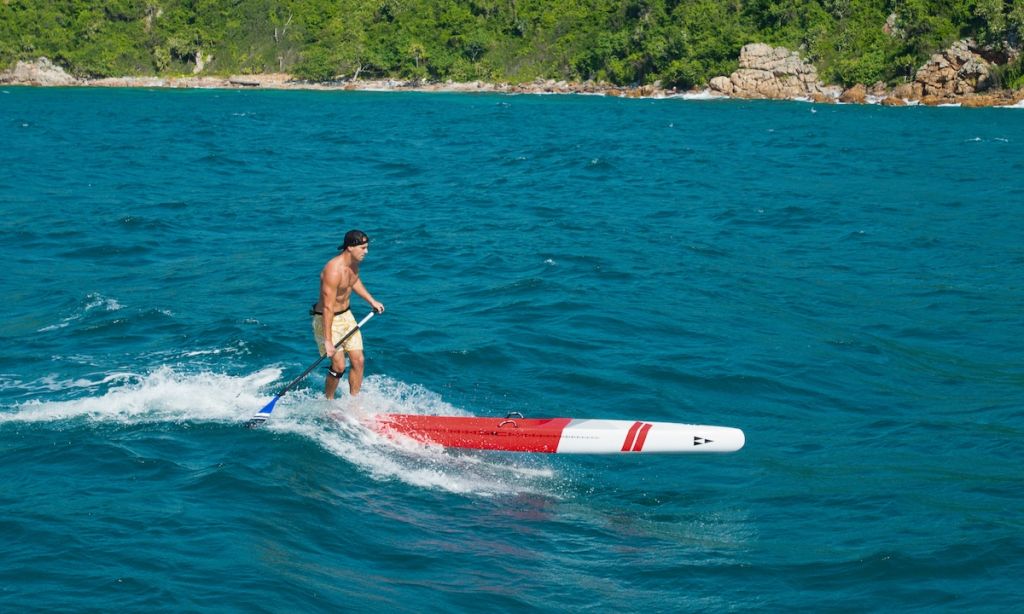New Life Jacket Regulations: What Paddleboarders Need to Know
- Written by Staff
- Published in News
- Comments::DISQUS_COMMENTS
The U.S. Coast Guard (USCG) and Transport Canada (TC) have jointly introduced major changes to how life jackets and personal flotation devices (PFDs) are approved and categorized. These updates not only improve cross-border compliance but also simplify gear selection for recreational users—including stand-up paddleboarders, one of the fastest-growing segments of the paddling community.
If you’re a SUP paddler in the U.S. or Canada, this affects what gear you can wear legally—and confidently—on the water.
What Changed?
Both agencies have harmonized their standards to align with UL 12402 / ULC-S12402, which is based on the internationally recognized ISO 12402 standard. This shift moves away from the outdated U.S.-only Type I, II, III labels and introduces a performance-based classification system—one that’s easier to understand and better suited to real-world activities like paddleboarding.
- Read the official USCG Final Rule on Lifejacket Approval Harmonization
- USCG Boating Safety News: Lifejacket Harmonization Overview
- Transport Canada – Acceptance of UL 12402-4 Lifejackets (PDF)
 Photo courtesy: Aqua Marina
Photo courtesy: Aqua Marina
What It Means for Paddleboarders
Easier Gear Selection
SUP paddlers will now see simple icons and buoyancy level indicators on approved PFDs—making it clear whether a device is suited for flatwater, surf, open ocean, or whitewater use. No more guesswork about whether a “Type III” or “Type V” applies to your paddling conditions.
Cross-Border Simplicity
If you're a SUP athlete or recreational paddler who enjoys trips between the U.S. and Canada, your UL 12402-approved PFD is now recognized in both countries. That means no need to carry separate gear or worry about enforcement differences at the border.
More Freedom of Movement
The new standard supports the approval of low-profile, activity-specific PFDs designed with paddlers in mind—including belt packs and high-mobility vests. As long as they meet the UL 12402 performance requirements, they’re legal and safe for use.
You Can Keep Using Your Old Gear
There’s no mandate to toss your current USCG- or TC-approved gear if it’s still in good shape. Older “Type III” paddling vests, for example, remain legal until they wear out or are no longer serviceable.
 Photo courtesy: Body Glove
Photo courtesy: Body Glove
New Labels, Same Goal: Safety on the Water
The new performance levels that replace the old “Type” system are:
- Level 50/70: For competent swimmers in calm, sheltered waters (typical for paddleboarding on lakes, bays, and slow rivers).
- Level 100+: For use in more challenging environments with rough water, where turning an unconscious wearer face-up is critical.
These levels come with clearly marked icons and usage descriptions, allowing paddlers to match their vest to their intended environment.
What Retailers and SUP Shops Should Do
- Educate Your Customers: Paddleboarders often value comfort and minimalism. Help them choose Level 50 or 70 buoyancy aids that are both safe and activity-appropriate.
- Stock the New Labels: Start transitioning to UL 12402-compliant gear, especially belt packs and paddle-specific vests.
- Highlight Cross-Border Use: For Canadian and U.S. paddlers alike, dual-approved gear is a selling point—especially for SUP tour operators and travelers.
Final Thoughts
These regulatory changes are a win for paddlers. By adopting internationally harmonized safety standards, the USCG and Transport Canada are improving clarity, removing outdated jargon, and encouraging broader use of effective, paddler-friendly safety gear.
Whether you’re cruising calm waters or heading out on an ocean downwinder, you’ll now be better equipped to select the right flotation for your needs—and stay compliant while doing it.
For more info:

Staff
Submit your news, events, and all SUP info, so we can keep promoting and driving the great lifestyle of stand up paddling, building its community, and introducing people to healthier living.
Website: supconnect.com Email This email address is being protected from spambots. You need JavaScript enabled to view it.





